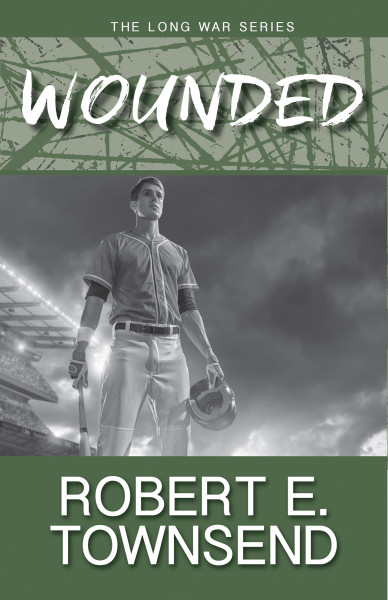The Goal and The Five-Year-Plan Plan that will get me there.
I write about liars, deception, self-deception, concealment and working truth.
I plan to write and publish four novels (a prologue with an interconnected trilogy) that follows a couple, Richard Belisle, an American soldier, and his childhood friend, Marie Jeanne Charbonneau, a Canadian musician, through the last half of the twentieth century. Through reference to the histories and stories of their soldier fathers, we visit events in the first half of the 20th century.
The backdrop is the conflict between romanticism and realism, fact and fiction and the great religious wars, communism and capitalism. I examine state sponsored deception as an aspect of statecraft, the lies we tell one another, and men and women struggling to find therein a working truth by which to live.
 Prologue, Spirit Falls. Publication date: 1 October 2010. Spirit Falls is a coming-of-age novel set on the empty and hardscrabble borderland between Michigan’s Upper Peninsula and northern Wisconsin, a story of childhood friendship growing into profound love.
Prologue, Spirit Falls. Publication date: 1 October 2010. Spirit Falls is a coming-of-age novel set on the empty and hardscrabble borderland between Michigan’s Upper Peninsula and northern Wisconsin, a story of childhood friendship growing into profound love.
Volume I, “The Wounded.” Publication date: 1 January 2012. It is 1961. Passion joins the young couple, war separates them. He wanders the surface of the earth; she the world of music. Rick comes to represent all that is odious to Marie Jeanne; save that their children join them.
 Volume II, “Broken Codes” Publication date: 15 June 2012, Broken Codes is a thriller that takes place along the ancient and bloodied trails of Thuringia, in the decadence of underground Berlin, and in the corridors of Soviet and American power. In October 1973, Israel is on the verge of destruction as the US and USSR come to the edge of nuclear war in repetition of the events leading to Europe in August 1914.
Volume II, “Broken Codes” Publication date: 15 June 2012, Broken Codes is a thriller that takes place along the ancient and bloodied trails of Thuringia, in the decadence of underground Berlin, and in the corridors of Soviet and American power. In October 1973, Israel is on the verge of destruction as the US and USSR come to the edge of nuclear war in repetition of the events leading to Europe in August 1914.
Volume III “The Resolution of Trust.” I am thinking about it, though not too hard. Bayonet is difficult enough.
Why this goal?
In mid-summer 2009, Patrice and I had returned from a six-month stay in Moscow. The city made a strong impression upon me. To coin a phrase, it gave me pause. The Russians I met were a warm, kind and sharing people who until 2001 were ruled by a brutal and deceptive, unspeakably cruel people, who were the Russians.
In October I will be 64 years old. I had been an American soldier for 1/3 of those years, and for 1/3 of those soldier years I was a counter-deception analyst, for the most part against the now collapsed Soviet Union and its Strategic Deception Directorate of the Soviet General Staff.
I have been interested in liars for as long as I can remember. My father, thrice orphaned before his 8th year (We believe this to be more or less true), was raised in a rage-filled Baptist household where lying meant survival. He ran away from home in his 14th year. Having survived childhood, he saw no reason to change a successful strategy. One of my sisters asked him once in all sincerity, “Dad, do you know when you are lying?” I don’t remember what he answered, but would it have mattered?
I attended University of Wisconsin-Madison, 1965-69, where my northern Wisconsin rural values collided with values brought west from the Northeast. Amongst the sincere, the lazy and the addle-brained in the nascent anti-war movement, I became aware.
I was strongly attracted. Strongly attracted? The easterners rocked the very foundation of my seventeen-year-old belief system. Their narrative was that America, a slave-holding, genocidal society that exploited the innocents of the earth, was tainted by original sin while mid-America was populated by small-minded, ill-educated dolts. It was better someplace else, in the Soviet Russia, Red China maybe, but certainly Cuba and, ‘Jesus, isn’t New York City the end!’
The narrative resonated. I knew dolts, a lot of them, in Merrill, Wisconsin; boys working in Texaco gas station who were at heart concentration camp guards in waiting; small-minded housewives whose pleasure was a bankruptcy forced farm auction; misogynistic men, who now and then beat a wife to death. And rest of the narrative had a ring of truth to it. I knew little about the Soviet Union, less about Red China, but heard rumors about South East Asia, mostly reading about Dr. Thomas Dooley, a missionary doctor in Laos. What I knew came from The Reader’s Digest whose coherent worldview made it suspect. I had a girlfriend from ‘out east’ and she said I was a ‘good’ soldier, like a WWII German soldier. I was ashamed of where I came from.
And the eastern girl-women were intoxicating. They read strange books. They listened to discordant music. They played the cello and violin and Sondheim. They had been to Paris. They spoke confidently. They were Kennedy liberals, even socialists, to my Nixonian conservatism. They did not have to work their way through college.
But it was the University after all. Over time the narrative became more complex.
The essayist, P.J. O’Rourke, said somewhere that he became a 1960s card-carrying member of the Communist Party USA because that was the easiest way to get laid in New York City. But one also could get laid without precondition by simulating interest and sympathy in radical causes. P.J. apparently felt no discomfort with his deception, if you were stupid enough to be a Communist, you deserved to get fucked.
I suspect he wasn’t telling the truth, or at least wasn’t telling the whole truth. Lying, even to get laid, didn’t work for me. One fell in love seeking connection; lying is to connection as hydro sulfuric acid is to flesh. (In the interest of full disclosure, I was also tall, dark, and handsome. That got you laid too.)
To attend a Students for Democratic Society meeting was like attending a cell meeting with Nechaev to address a cell meeting in Fyodor Dostoevsky’s “Possessed.”
In 1967 Robert Conquest published “Harvest of sorrow,” what was known to date in the West about the Soviet rule and terror. Amidst the conflicting narratives, there were ‘working truths,’ which anyone who could read could know.
1. When Communists came to power, the people fled.
2. When Communists came to power, the borders were closed, and only whispers escaped.
3. When Communists came to power, the farmers were herded onto communes, which were like plantations, on which blacks in the American south lived.
An incident from that time remains in my memory as I write as if it had happened this afternoon. It demonstrated attitude I perceived as “of the city,” and associated with those who called themselves Marxists or Marxist-Leninist or Stalinist or Maoists or Trotskyites or… I was sitting in the Gordon Commons dining area with an assorted fashionable and young anti-American Americans. I ate heartily. I belonged to the clean plate club. One friend put out his cigarette into his mashed potatoes and gravy. “Who can eat this shit?” he said.
I had just eaten that shit. And I had raised that shit. In summer I canned those peas. In fall I picked those potatoes. In the winter I slaughtered that beef steer which the previous spring I had delivered in the west field and feed him in January with the hay I had put up in July, with the oats I had threshed in September. These young Marxists had no idea how hard it had been to put that plate of shit on the table before them.
Marx, Lenin, Mao, Ho Chi Minh and Pol Pot did not know how complex it was to plant, protect, harvest and distribute a potato. It was the city against the countryside.
I went to fight. It seemed the right thing to do at the time. That is the purpose of my writing essays and fiction these next five years.
I was probably ill suited and ill trained to be America’ counter-deception ace, but that’s the way it goes. I was at least as capable as the next guy to feel my way blindly through the smoke and mirrors.
As I reread this, I think, “For Christ’s sake, Robert, lighten up.’ Among my own children there are picky eaters.
And whatever happened to those poorly fed young Marxists? When I returned to Madison in 1990 after twenty-odd years absence, there they were. They had become the Dane County board and Madison City Council, the state and city bureaucrats, now liberal rather than Marxist, rock-ribbed stalwarts who fight ferociously to keep Madison preserved as it was in 1965. Go figure, eh?
I read the “The Black Book of Communism” while I was in Moscow.






